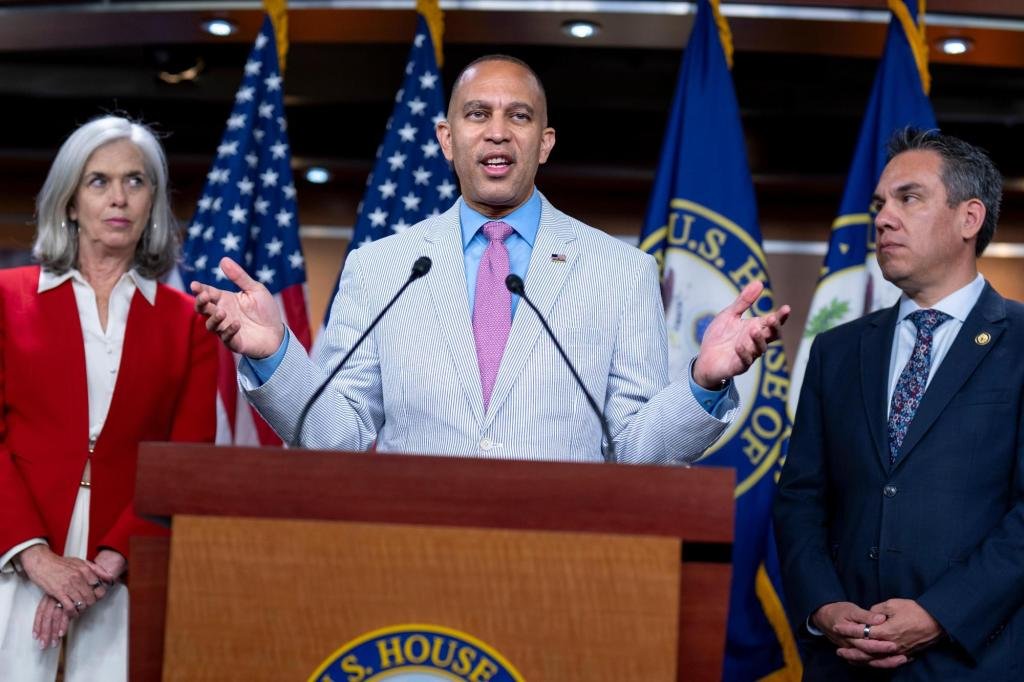House Democrats Challenge GOP on Jeffrey Epstein Files
On a sweltering Wednesday afternoon in July, the air in the House Committee on Oversight crackled with tension. The session was poised to unravel into a political showdown as House Democrats sought to subpoena President Trump’s Justice Department for the long-sought files in the sex trafficking investigation surrounding Jeffrey Epstein. The stakes were high: transparency versus complicity, public accountability versus political immunity. A motion for the subpoena was tabled just hours before Congress was set to recess for a month, ensuring that the issue would linger in the minds of American voters.
The Political Landscape
The subcommittee, chaired by Republican Rep. Clay Higgins of Louisiana, faced a pivotal moment. While several members expressed dissatisfaction with the lack of action on the Epstein files, it remained unclear if they would break ranks with party leadership to support the subpoena motion. “This is not just about files; it’s about the integrity of our institution,” said Rep. Summer Lee, the Pennsylvania Democrat spearheading the motion, as she paced outside the hearing room.
As the meeting unfolded, party lines seemed drawn with crayons of contrasting colors. House Speaker Mike Johnson, beset by pressure from both Trump loyalists and moderates, told reporters that there was no need to take action this week. “The Trump administration is already doing everything within their power to release them,” he stated, a comment that seemed more a plea than a proclamation. Yet for Democrats, the narrative was clear: the Republican leadership was actively choosing to shield powerful figures at the cost of accountability.
A Call for Transparency
The battle lines are not merely drawn; they are charged with the weight of principle. House Democratic Leader Hakeem Jeffries reflected this sentiment during a press conference: “Why haven’t Republicans released the Epstein files to the American people? It’s reasonable to conclude that Republicans are continuing to protect the lifestyles of the rich and the shameless.” With Epstein’s death in a high-security prison six years ago, the case has lingered like an unsavory ghost, haunting the corridors of power.
Reactions from the Republican Side
Republicans, for their part, have labeled the Democratic push as opportunistic. “This is simply a political theater. The Department of Justice has held onto this investigation through Biden’s presidency as well,” remarked a frustrated House Republican affiliated with the right-wing faction. Yet, many Democrats contend that the issue transcends partisanship, hitting at the heart of a democracy that promises justice for all.
- The Epstein case raises profound questions about power dynamics in society.
- Concerns about who truly receives justice linger in the minds of many Americans.
- The politicization of the case impacts public trust in legislative bodies.
Divided Opinions Among Experts
Political analysts are divided on the implications of this ongoing conflict. Dr. Eliza Hartman, a political scientist at a leading university, believes that “the Epstein saga underscores deep-seated issues that plague Washington, where the privileged often wield influence that could obstruct justice.” Hartman suggests that the calls for transparency may ultimately resonate with voters who feel disenfranchised.
Conversely, Dr. Simon Kline, a conservative commentator, argues that the attempt to subpoena the files is more about garnering headlines than ensuring accountability. “Republicans and Democrats alike are playing their cards to score political points,” he said. “The broader conversations about governance are, unfortunately, being overshadowed by this flashpoint.”
The Story Behind the Files
The files in question hold the potential to expose a network of complicity that stretches beyond Epstein himself. Implicated in the scandal were many high-profile names, rendering the files a Pandora’s box that both sides seem eager to either unlock or seal shut. “This is about much more than just Epstein; this concerns how we regulate power,” asserted Rep. Ro Khanna, who has backed a bipartisan bill to facilitate the release of the files. “Is our government co-opted by those in high places, or can it be a trustworthy institution for the average American?”
The intersection of political strategy and moral obligation is complex. As Congress heads into recess, with the specter of Epstein still haunting the Capitol, the resolution remains far from certain. Both parties are gearing up for their respective campaigns, with messages of economic stability and social justice preparing to collide in the public arena.
The push for the Epstein files represents far more than a mere subpoena; it’s a test of character for a government at a crossroads. As the nation grapples with the implications of power, abuse, and accountability, this moment could define the political landscape for years to come.





